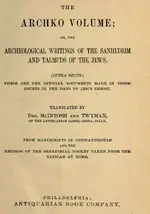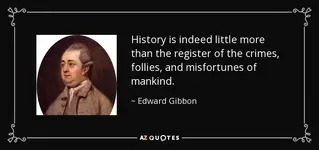Just finished The Fall of Rome by Nick Holmes. The author makes a good case that civil war, a failure of political leadership, the decline of the Roman army, and the large Germanic migrations of the 4th and 5th centuries were what destroyed the Roman Empire(in the west).
You are using an out of date browser. It may not display this or other websites correctly.
You should upgrade or use an alternative browser.
You should upgrade or use an alternative browser.
What are you currently reading?
- Thread starter JCSteel
- Start date
Is this where the 'How often do you think about the Roman Empire' meme has come from?Just finished The Fall of Rome by Nick Holmes. The author makes a good case that civil war, a failure of political leadership, the decline of the Roman army, and the large Germanic migrations of the 4th and 5th centuries were what destroyed the Roman Empire(in the west).
I've been so slack with my reading for years now. Everything I read is online and I hate it.
I've just ordered 3 books from E Michael Jones and I can't wait to dive into them. I'm sure some here have read his stuff?
I just downloaded The Archko Volume vfrom archive.org and am going to dig into it. The book is in the public domain. It is described as "The Archeological Writings of the Sanhedrim and Talmuds of the Jews" and pertains to their perceptions and witness to Jesus' crucifixion and resurrection at the time. Apparently came from the Vatican Library.
Attachments
E. Michael Jones, The Holocaust Narrative
Wish I could get my hand on a digital copy of it. I hope EMJ comes around and sells it digitally. Where I live such a book would be forbidden or not get past customs.E. Michael Jones, The Holocaust Narrative
Is this where the 'How often do you think about the Roman Empire' meme has come from?
I've been so slack with my reading for years now. Everything I read is online and I hate it.
I've just ordered 3 books from E Michael Jones and I can't wait to dive into them. I'm sure some here have read his stuff?
I have two books of his and I'd like to get The Holocaust Narrative.
Another book of his well worth reading is 'Suicide of the West - An Essay On The Meaning and Destiny of Liberalism'. Published in 1964!I'm reading The Machiavellians: Defenders of Freedom by James Burnham. Very interesting book.
Thanks for the recommendation. I will definitely add it to my reading list!Another book of his well worth reading is 'Suicide of the West - An Essay On The Meaning and Destiny of Liberalism'. Published in 1964!
E. Michael Jones, The Holocaust Narrative
Please give a report on your thoughts, if this book really addresses the topic as well as it purports to then I think it may be a necessary purchase. I do wish there was an ebook as well, hopefully it will come but perhaps they're trying to avoid piracy for now.
Currently reading Cicero: The Life and Times of Rome's Greatest Politician by Anthony Everitt. Cicero is somewhat of a hero of mine- I felt edified by portions of his writing, such as his Treatise on Old Age and Tusculan Disputations. St. Augustine, Martin Luther, and John Adams were all great admirers of him.
Just started re-reading 'Tournament of Shadows: The Great Game and the Race for Empire in Central Asia' by Karl E. Meyer and Shareen Blair Brysac. I first read it after its publication in 2006; that was ages ago, so time for a second go 'round. It covers the cloak-and-dagger campaign of intrigue in Tibet, Afghanistan, and Central Asia between the Russian and British empires, from the early 1800's until the 1907 Anglo-Russian Convention. If you've ever read Rudyard Kipling's 'Kim', it deals with this. For anybody interested in these events, and 19th Century Central Asian intrigue in general, I also highly recommend any of the works of historian Peter Hopkirk.
I asked EMJ's team directly if there are plans for an e-book version, and they said no, not at this time.Please give a report on your thoughts, if this book really addresses the topic as well as it purports to then I think it may be a necessary purchase. I do wish there was an ebook as well, hopefully it will come but perhaps they're trying to avoid piracy for now.
Last edited:
I'm currently reading "Explanation of the Apocalypse" by Priest Daniel Sysoev.
I've also just got 2 books by print on demand that John Bunyan read. These 2 books were they only things his wife possessed when they got married. They were handed down to her by her father, and Bunyan attributes them to him becoming a believer and turning away from sin.
"The Plain Man's Pathway to Heaven..." by Arthur Dent and "The Practice of Piety" by Lewis Bayley.
I've also just got 2 books by print on demand that John Bunyan read. These 2 books were they only things his wife possessed when they got married. They were handed down to her by her father, and Bunyan attributes them to him becoming a believer and turning away from sin.
"The Plain Man's Pathway to Heaven..." by Arthur Dent and "The Practice of Piety" by Lewis Bayley.
I once asked my Pastor for a good book to read. He recommended John Bunyan's The Pilgrim's Progress. I am still thankful to him to this day for it.I'm currently reading "Explanation of the Apocalypse" by Priest Daniel Sysoev.
I've also just got 2 books by print on demand that John Bunyan read. These 2 books were they only things his wife possessed when they got married. They were handed down to her by her father, and Bunyan attributes them to him becoming a believer and turning away from sin.
"The Plain Man's Pathway to Heaven..." by Arthur Dent and "The Practice of Piety" by Lewis Bayley.
Just finished Anna Karenina by Leo Tolstoy (Constance Garnett translation with edits from Kent and Berberova). It's a hefty book at almost 1000 pages, but it wasn't difficult to read. Honestly, it was one of the best books I've ever read. It made me wish I were born in the aristocracy in tsarist Russia. I'm going to have to put War and Peace on my list as well, but will need a little break before I attempt that one.
I have now started E. Michael Jones's 'The Jewish Revolutionary Spirit'. I recently finished The Jewish People and Jesus Christ by Jacob Jocz, who is a Messianic Christian. I learned a lot about the early Jewish Christian interactions with Jews in the early days of Christianity. Namely, I didn't realize the Jews had a book that mocked the life of Jesus, so deeply has that been hidden. It helped me better understand how Jews and Christians basically can't get along, the Jews will always see Christians as an enemy that threatens their survival.
But I wanted to mention the Walter Isaacson 'Elon Musk' biography that recently came out. I felt the quality of Walter's writing is declining, in comparison to his other biographies. The chapters were short, Walter's biases were highly evident, particularly in the later Twitter chapters, and it seemed to me that he probably had to bite his tongue a lot being around Elon, Elon being the way he is. Overall, the book left me feeling tired and depressed. Elon's life is not at all enviable, neither is his version of hardcore work. The way he treats people is questionable. I get where he comes from and why he can be harsh, but he didn't seem so harsh to me as Walter describes, it's more the drama of instant hirings and firings and demanding long hours. I would lose it too if I was running a company and engineers kept telling me this and that were impossible and you find out the reasons were bogus or lazy. I suspect a lot of people simply need permission to make a change, too afraid to do so on their own and the change be a problem. I did like his method of questioning the root cause of why a decision was made, this has actually helped me smell past the bovine in my own life.
Wonder if anyone else has read Elon's biography and what they thought?
But I wanted to mention the Walter Isaacson 'Elon Musk' biography that recently came out. I felt the quality of Walter's writing is declining, in comparison to his other biographies. The chapters were short, Walter's biases were highly evident, particularly in the later Twitter chapters, and it seemed to me that he probably had to bite his tongue a lot being around Elon, Elon being the way he is. Overall, the book left me feeling tired and depressed. Elon's life is not at all enviable, neither is his version of hardcore work. The way he treats people is questionable. I get where he comes from and why he can be harsh, but he didn't seem so harsh to me as Walter describes, it's more the drama of instant hirings and firings and demanding long hours. I would lose it too if I was running a company and engineers kept telling me this and that were impossible and you find out the reasons were bogus or lazy. I suspect a lot of people simply need permission to make a change, too afraid to do so on their own and the change be a problem. I did like his method of questioning the root cause of why a decision was made, this has actually helped me smell past the bovine in my own life.
Wonder if anyone else has read Elon's biography and what they thought?
Knowing that you can't review Scripture like any other book, I add that to preface my thoughts regarding the first 7 chapters of Paul's epistle to the Romans, which I just reread. It's taken me 15 years to just begin to grasp the meaning in certain chapters. Now I'm reading it without some of the Protestant presuppositions that I've always brought to the text, in particular Chapters 3, 4, and 7. I never really got anything out of Chapter 4 but now I see it as a powerful description of the kind of faith that justifies men before God, when Paul talks about David and Abraham. Chapter 7 has always confused me; I see what Martin Luther meant when he said that you can't understand it if you don't know that Paul uses "law" in different senses. If Paul uses "law" to describe anything from Scripture that doesn't penetrate the heart and which aggravates man's old or unrenewed nature to lust, then there isn't this sharp dichotomy between law and gospel as some say there is.
Reading Paul is edifying, all Scripture is, but the book of Romans is more of an intellectual exercise than other portions of the Bible.
Reading Paul is edifying, all Scripture is, but the book of Romans is more of an intellectual exercise than other portions of the Bible.
Last edited:



